Caribbean American Trailblazers: Pioneering Achievements and Contributions in the United States
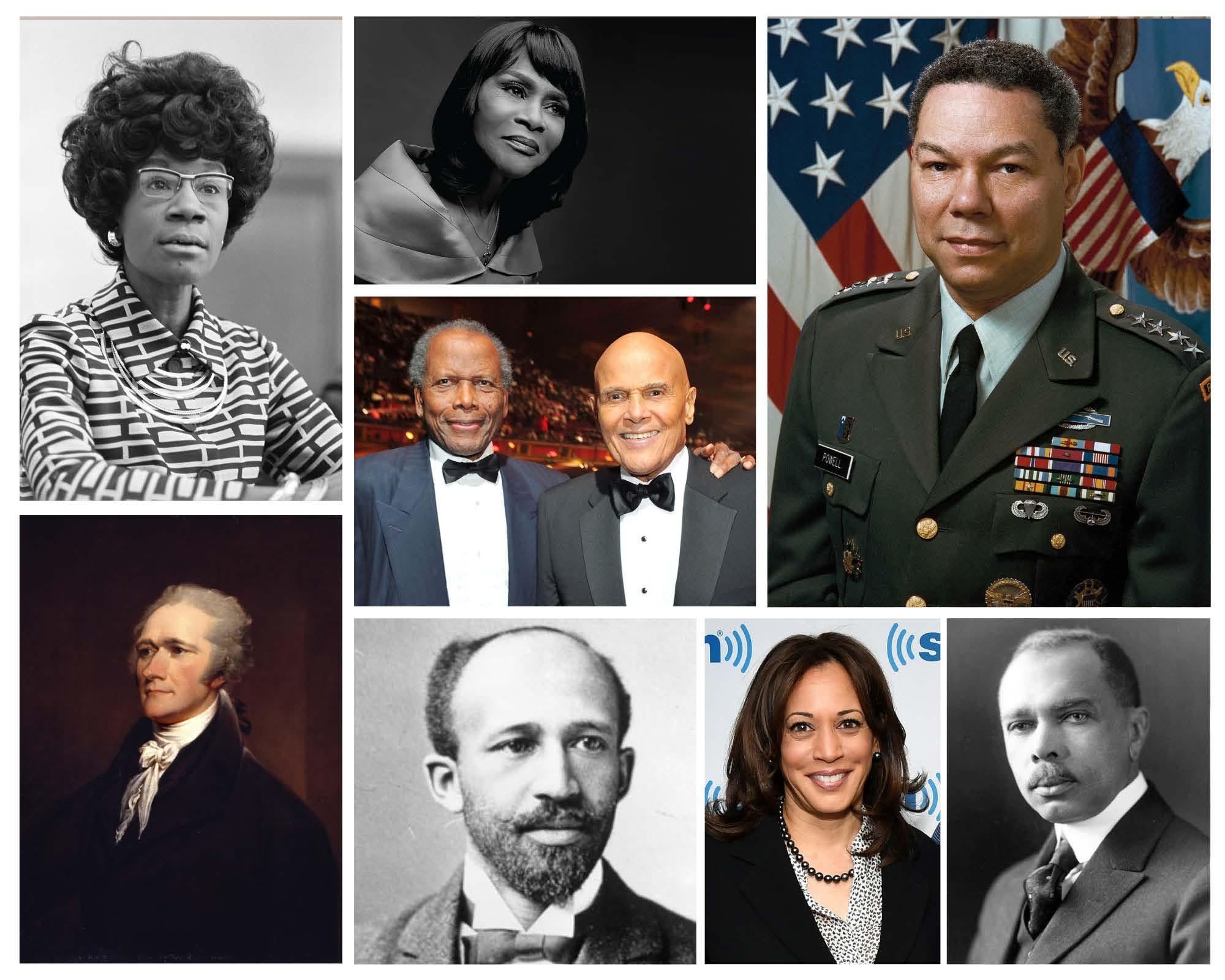

Juneteenth, also known as Juneteenth IndependenceDayorFreedomDay,isan important American holiday that commemorates the emancipation of enslaved African Americans. Celebrated on June 19th each year, Juneteenth holds profound historical significance as it marks the day when the last enslaved people in the United States were informed of their freedom. The holiday's origin can be traced back to Texas, where the announcement of emancipation occurred two and a half years after President Abraham Lincoln issued the EmancipationProclamation.

The Emancipation Proclamation, issued onJanuary1,1863,byPresidentLincoln, declared that all slaves in Confederateheld territory were to be set free. However, this proclamation did not immediately reach all enslaved individuals, as the Confederacy continued to control many areas during the Civil War. It was not until Union General Gordon Granger arrived in Galveston, Texas, on June 19, 1865, that the news of freedom finally reached the enslaved African Americans in that region.
Upon his arrival in Galveston, General Granger read General Order No. 3, which stated: "The people of Texas are informed that, in accordance with a proclamation from the Executive of the United States, all slaves are free."This momentous announcement marked the end of slavery in Texas, and it sparked jubilant celebrations among the newly emancipated African Americans. Juneteenth celebrations began the following year in 1866 and quickly spreadtootherstates. Cont/d on page 5
The United States of America has been enriched by the remarkable contributions of individuals from diverse backgrounds. Among these, Caribbean Americans have played a vital role in shaping the nation's history and culture. Over the years, many Caribbean Americans have risen to prominence, breaking barriers and making indelible marks in various fields. This article celebrates the achievements and contributions of ten extraordinary Caribbean Americans, shedding light on their countries of origin and their significant impacts on Americansociety.
Alexander Hamilton, a Founding Father of the United States, was born in Charlestown, on the island of Nevis, which was part of the British West Indies (now known as Saint Kitts and Nevis). His father, James Hamilton, was of Scottish ancestry, while his mother, Rachel Fawcett Lavien, was of FrenchHuguenotandBritishdescent.

He immigrated to the American colonies and became a prominent figure in the Revolutionary War, a key advocate for the Constitution, and the nation's first Secretary of the Treasury. His economic and financial policies laid the foundation for the country's economicsuccessandgrowth.
Colin Powell, born in Harlem, New York City, to Jamaican immigrants. His parents, Luther and Maud Ariel Powell, both hailed from Jamaica. Colin Powell became the first African American to serve as Secretary of State, holding the position from 2001 to 2005 under President George W. Bush. A distinguished military leader, he rose to the rank of fourstar general and played a crucial role in shaping U.S. foreign policy and military strategy during his illustriouscareer.- Cont/d on page 6
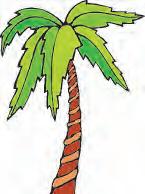
6 FREE Your Passport to the Caribbean American Community Jun/Jul 2023 1 www.caribbeanamericanpassport.com 14
Alexander Hamilton
Colin Powell
Cicely Tyson
James Johnson Kamala Harris
W.E.B Dubois
Shirley_Chisholm
Sidney Pointe and Harry Belafonte

www.caribbeanamericanpassport.com 2
Gittens-Roberts Owner/Publisher/Editor

LIFEST Y LE
Juneteenth and Caribbean American Slave History
Samuel J. Roberts
Owner/Publisher/Editor
Juneteenth and Caribbean American slave history are two vital chapters in the larger narrative of the African diaspora's struggle for freedom, equality, and recognition. Although originatingfromdistinctgeographicallocations,thesehistorical experiences share significant parallels, underscoring the resilienceanddeterminationofthosewhoenduredthebrutality ofslaveryandtheindomitablespiritofhopethateventuallyled toemancipation.
Juneteenth,celebratedonJune19th,markstheemancipationof enslavedAfricanAmericansintheUnitedStates.Itsoriginscan be traced back to June 19, 1865, when Union General Gordon GrangerarrivedinGalveston,Texas,andannouncedtheendof slavery, two and a half years after President Abraham Lincoln's EmancipationProclamation.Thedatebecameabeaconofhope and jubilation for African Americans, who celebrated their newfound freedom with vibrant festivities and gatherings that honoredtheirancestors'resilience.
Conversely,CaribbeanAmericanslavehistorytracesbacktothe arrival of enslaved Africans in the Caribbean during the Transatlantic Slave Trade. For centuries, these individuals endured unspeakable suffering and hardship on the region's sugar, cotton, and tobacco plantations. Their labor laid the foundations of immense wealth for European colonial powers, leaving an indelible mark on the Caribbean's cultural, economic,andsociallandscape.
While both regions experienced the trauma of slavery, the journey towards emancipation took unique paths. In the Caribbean, emancipation came earlier, with the British Parliament passing the Slavery Abolition Act in 1833. On August 1, 1834, thousands of enslaved Africans in the British coloniescelebratedtheirliberation.EmancipationDaybecamea symbol of triumph over adversity and a time to honor the sacrificesofthosewhopavedthewayforfreedom.
Juneteenth and Emancipation Day both represent pivotal moments in the African diaspora's history, underscoring the importance of remembering and learning from the past. These celebrations serve as reminders of the resilience of enslaved people, their descendants, and the indomitable human spirit thatperseveredthroughunimaginablehardships.
Moreover,theculturalexchangesbetweentheUnitedStatesand the Caribbean during and after slavery significantly impacted the shared experiences of African Americans and Caribbean Americans. The oral traditions, music, spiritual practices, and storytelling that evolved in both regions influenced the rich tapestryofAfricandiasporiccultureinourcommunitiestoday.
The enduring legacy of slavery continues to shape the identities and struggles of African Americans and Caribbean Americans. Both groups have faced systemic racism, discrimination, and socioeconomic disparities, which have perpetuated a cycle of inequality for generations.
In the United States, Juneteenth celebrations have seen a resurgenceinrecentyears,gaininggreaterrecognitionand significance as a symbol of African American heritage and history. The movement to make Juneteenth a federal holiday represents a collective effort to acknowledge the historical injustices endured by African Americans and honor their contributions to the nation's cultural and socialfabric.
The interwoven narrative of Juneteenth and Caribbean slavehistoryisatestamenttotheresilience,determination, andhopeoftheAfricandiaspora.Bothnarrativessharethe struggles and triumphs of enslaved Africans and their descendants, who courageously fought for freedom and equality. As we commemorate Juneteenth and Emancipation Day, let us remember that their significance extends beyond a single day of remembrance; they symbolize the ongoing quest for justice, dignity, and equality for all. By acknowledging and learning from this shared history, we can work together to build a more equitableandinclusivesocietyforfuturegenerations.
1969 Alafaya Trail • Orlando, FL 32828 Office: 407-427-1800 Fax: 407-386-7925
Toll Free: 877-220-8315
For Media Information email: Publisher: sroberts@caribbeanamericanpassport.com Info: .Info@caribbeanamericanpassport.com
Should you desire to review past copies of the publication go to http:// caribbeanamericanpassport.com and click on the 'Print Archive'.
Publisher&Editor...................................................................................Sam Roberts
Publisher ............................................................................. Guenet Gittens-Roberts
Editor&ContributingWriter ....Aleia Roberts
Contributing Writers: Tony Dyal
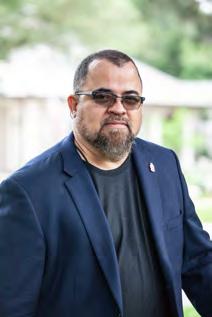
Contributing Photographers King Visual
Dillia Castillo
Central Florida Distribution......................................................... .Danielle Browne
South Florida Distribution.............................................................Norman Williams

NorthFlorida Distribution Kadeem Roberts
Tampa Distribution...................................................................................Julian Pina
www.caribbeanamericanpassport.com
3
Guenet
rights
Copyright (C) 2016 GGR Marketing & Public Relations. All
reserved.
Drug Policies, Testing Methods Adapt to Growth in Cannabis Use
Editor's Note: This commentary is provided by the Medical Marijuana Education and Research Initiative (MMERI) of Florida A&M
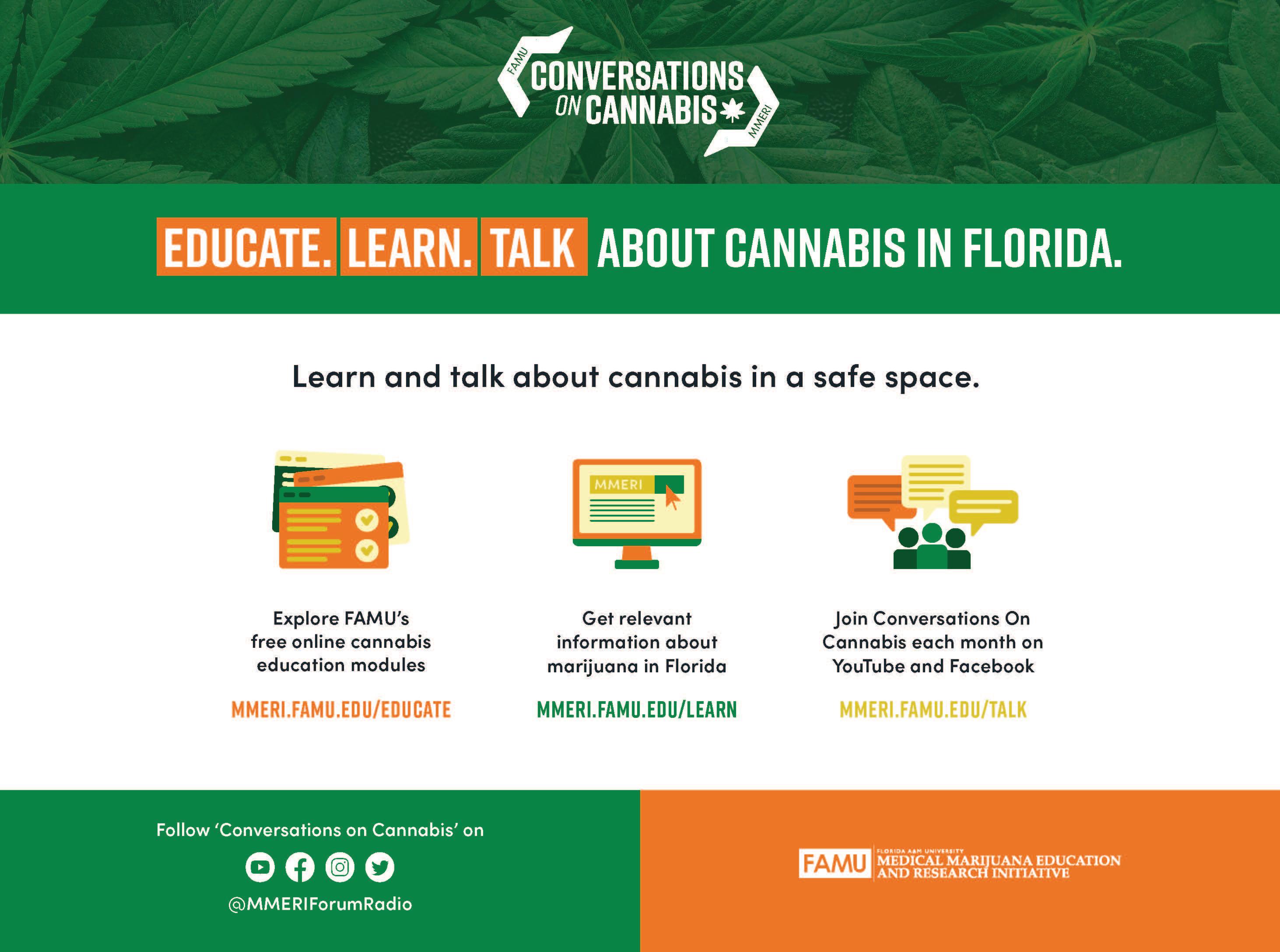
Consider this hypothetical scenario: Two weeks ago, during a vacation in California, you lawfully purchased and consumed marijuana intended for adult use. But now you are back at work in Florida, where recreational cannabis remains illegal, and you have been chosen for a random drug test by your employer.
It is highly likely that your past marijuana usage, although legal at the time, would be detected by urine and hair follicle tests. A urine analysis can find traces of tetrahydrocannabinol (THC), the psychoactive component in cannabis, for up to 30 days following marijuana consumption, while a hair follicle sample offers up to 90 days of potentially incriminating evidence.
If your employer has a strict drug-free workplace policy, you could be fired regardless of the circumstances. The same consequence could happen even if you had legally used low-THC medical cannabis because employees with Florida medical marijuana cards are not protected by state law.
One commonly observed and blatantly obvious tactic individuals employ is intentionally showing up after the scheduled test date, allowing them more time to cleanse their system. Both Ms. Dobbins and Mr. Boutan have stopped attempts to use concealed drug-free urine samples
University
A particularly daring method used to cheat a urine test involves obtaining a urine sample from a non-user.
According to drug testing expert Zathan Boutan, employees whose job roles pose safety risks, such as those working in law enforcement and transportation, are often subject to random drug testing as a condition of employment, unlike employees in desk-bound positions.
“Oral fluid is one of the newer methodologies, and it goes back a day, possibly two if you're a heavy user,” says Kelly Dobbins, who has 25 years of experience in administering drug and alcohol tests for public and private employers, courts and the federal government.
“Oral fluid is one of the newer methodologies, and it goes back a day, possibly two if you're a heavy user,” says Kelly Dobbins, who has 25 years of experience in administering drug and alcohol tests for public and private employers, courts and the federal government.
One commonly observed and blatantly obvious tactic individuals employ is intentionally showing up after the scheduled test date, allowing them more time to cleanse their system. Both Ms. Dobbins and Mr. Boutan have stopped attempts to use concealed drug-free urine samples. A particularly daring method used to cheat a urine test involves obtaining a urine sample from a non-user.
www.caribbeanamericanpassport.com 4
The name "Juneteenth" is a blend of "June" and "nineteenth" and is commonly believed to have originated from the date of General Granger's proclamation. However, it is essential to note that different variations of the name were used, such as "Jubilee Day," "Freedom Day," or "Emancipation Day," dependingontheregion.
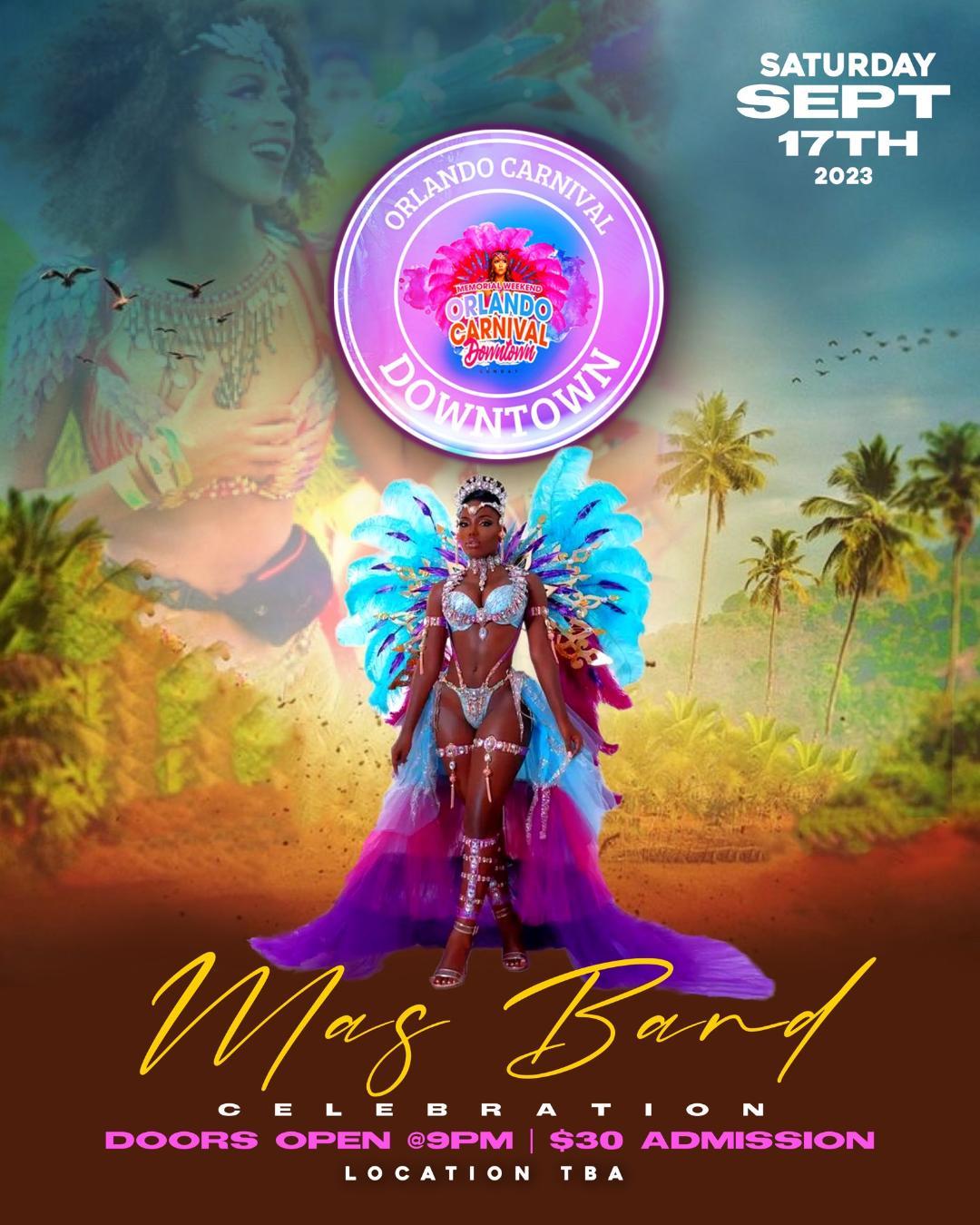
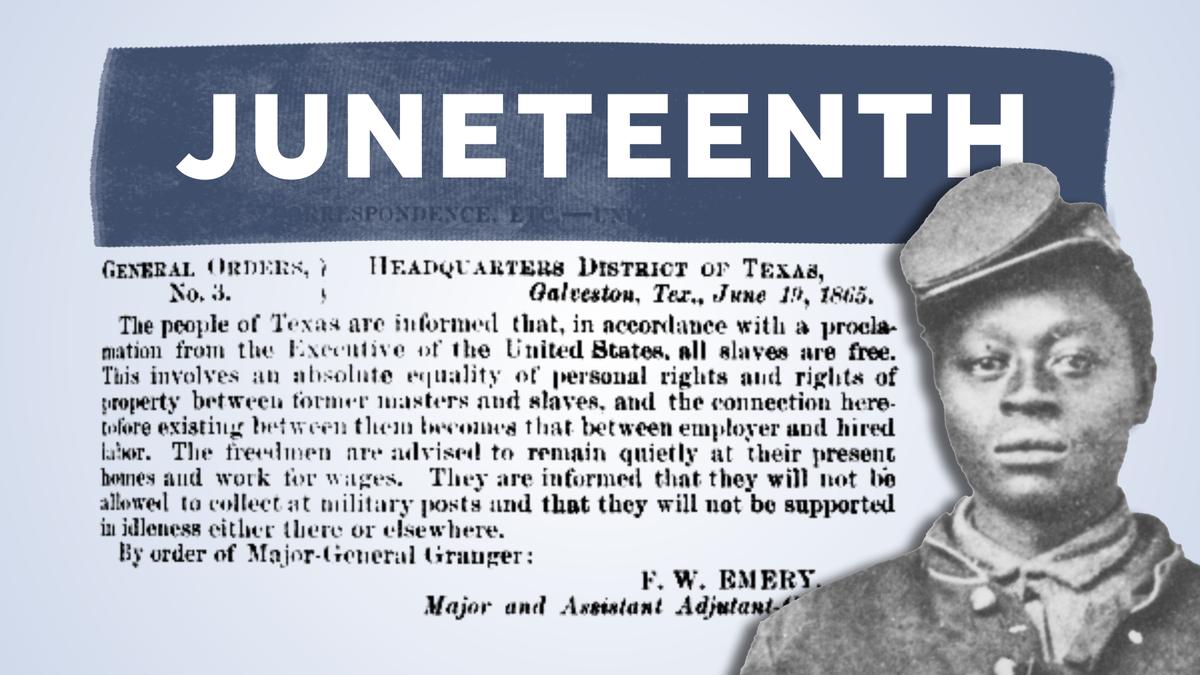
In the years following the first Juneteenth celebration, African American communities across the United States embraced the holiday as an annual occasion to honor their ancestors' struggles and celebrate their freedom. Juneteenth gatherings often featured spiritual and religious ceremonies, readings of the Emancipation Proclamation, singing, dancing, and communal meals. These celebrations served as a testament to the resilience and determination of African Americans despite thechallengestheyfacedduringReconstructionandbeyond.
During the late 19th and early 20th centuries, Juneteenth celebrations faced challenges as African Americans encountered continued racial segregation and disenfranchisement. Nevertheless, the significance of the holiday endured, and it became an essential part of African Americanculturalheritageandidentity.
The Civil Rights Movement of the 1950s and 1960s saw a resurgence of interest in Juneteenth. The fight for civil rights and equality, led by prominent activists such as Dr. Martin Luther King Jr., further emphasized the importance of acknowledging the struggles and achievements of African Americans. Juneteenth became a platform for advocating civil rightsandpromotingAfricanAmericanhistoryandculture.

In the 21st century, Juneteenth gained more widespread recognition and support. Many states officially recognized Juneteenth as a state holiday or observance. The efforts of activists and community leaders also led to a push for national recognitionofJuneteenthasafederalholiday.
On June 17, 2021, Juneteenth was officially designated as a federal holiday after the U.S. Senate and House of Representatives passed legislation, and President Joe Biden signed it into law. This historic milestone marked the first new federal holiday since Martin Luther King Jr. Day was establishedin1983.
Juneteenth's recognition as a federal holiday underscores its cultural and historical importance, not only to the African American community but to all Americans. It serves as a powerful reminder of the nation's complex history and the ongoingstruggleforequalityandjustice.
Juneteenth is celebrated with a blend of traditional festivities and educational events that highlight African American history, achievements, and contributions. The holiday continues to be an opportunity for reflection, education,andunity,aspeoplefromallbackgroundscome together to commemorate the end of slavery and to embrace the principles of freedom, equality, and respect forallindividuals.
5 Juneteenth 2023...Contpage1
Caribbean American Trailblazers: Pioneering Achievements and Contributions in the United States..
Hailing from Nassau, Bahamas, James Weldon Johnson was born in Jacksonville, Florida, to Helen Louise Dillet, who was of mixed-race Bahamian and European ancestry, and James Johnson, who was of African, Bahamian, and Native American descent. James Weldon Johnson was a renowned writer, diplomat, and civil rights activist. His most celebrated work, "Lift Every Voice and Sing," often referred to as the "Black National Anthem," became a powerful anthem for the African American community during the civilrightsmovement.
Known as the "Queen of Salsa," Celia Cruz was born in Havana, Cuba. Her ancestry was primarily Cuban, with African, Spanish, and Indigenous roots. Celia Cruz was a Cuban-American singer whose impact on Latin music was immeasurable. After leaving Cuba in the 1960s, she found immense success in the United States, garnering numerous awards and accolades for her vibrant and soulful performancesthatresonatedwithpeopleacrosscultures.
Shirley Chisholm, born in Brooklyn, New York, to Charles St. Hill, a factory worker from British Guiana (now known as Guyana), and Ruby Seale, a seamstress from Barbados She became the first African American woman elected to Congress and later made history as the first woman to seek the Democratic Party's nomination for President of the UnitedStatesin1972.Throughouthercareer,shefoughtfor civilrights,women'srights,andsocialjustice.
Cicely Tyson was born in New York City. Her parents, Frederica Tyson, and William Augustine Tyson, were both immigrants from the Caribbean island of Nevis. Cicely Tyson was a trailblazing actress who broke down barriers for African American women in Hollywood. Her powerful performances in films like "Sounder" and "The Autobiography of Miss Jane Pittman" earned her critical acclaim and made her an influential figure in the entertainmentindustry.
W.E.B. Du Bois was born in Great Barrington, Massachusetts, to Mary Silvina Burghardt Du Bois, whose family had long-standing French ancestry, and Alfred Du Bois,whowasofAfrican,Dutch,andFrenchdescent.While not Caribbean American himself, he shared ancestral ties with Haiti. W.E.B. Du Bois was a prominent civil rights activist, historian, and sociologist, co-founder of the National Association for the Advancement of Colored People (NAACP). Although born in Great Barrington, Massachusetts, his maternal ancestry traced back to Haiti. Du Bois's scholarship and activism laid the groundwork for the civil rights movement and challenged racial injustices in America.
Harry Belafonte was born in Harlem, New York City, to Caribbean immigrants. His mother, Melvine Love, was of Jamaican descent, and his father, Harold George Bellanfanti Sr., was of Martiniquan and Jamaican ancestry. Harry Belafonte,achievedinternationalfameasasinger,actor,and social activist. Often referred to as the "King of Calypso," his music brought Caribbean rhythms to the mainstream American audience. Moreover, Belafonte was deeply involved in the civil rights movement, using his celebrity statustoadvocateforsocialchangeandracialequality.
Sidney Poitier was born in Miami, Florida, to Bahamian parents. His father, Reginald James Poitier, was a farmer from Cat Island, Bahamas, and his mother, Evelyn Outten, was a Bahamian homemaker. Sidney Poitier was a pioneering actor and director in Hollywood. He broke racial barriers by becoming the first African American to win an Academy Award for Best Actor and used his influence to challenge stereotypes and promote positive portrayals of AfricanAmericansinfilm.
Kamala Harris was born in Oakland, California. Her father, Donald J. Harris, is of Jamaican descent, and her mother, Shyamala Gopalan, was of Indian descent. Kamala Harris, the first woman, first Black American, and first Asian AmericantoserveasVicePresidentoftheUnitedStates,her historic election marked a significant step forward for diversity and representation in American politics, inspiring generationstocome.
The achievements and contributions of these extraordinary Caribbean Americans have left an indelible mark on American history and society. From political leadership and civil rights advocacy to cultural enrichment and artistic brilliance, their diverse backgrounds and experiences have enriched the United States, making it a more inclusive and dynamic nation for all. As we celebrate their legacies, it is essential to recognize and honor the countless other Caribbean Americans who continue to shape the fabric of America, ensuring a brighter and more inclusive future for all.
Additionally, as we reflect on the achievements of these Caribbean American trailblazers, let us celebrate the diversity that forms the bedrock of America's strength. Their stories remind us that America's greatness lies in its ability to embrace individuals from all walks of life, recognizing that united in diversity, we can achieve extraordinary feats.
It is crucial that we continue to honor and preserve the legacies of these pioneering individuals. By doing so, we ensure that their contributions remain an inspiration to future generations, sparking the flame of ambition in young minds and fostering a society where everyone, regardless of their background, can dream big and make those dreams a reality.
The Caribbean American community continues to thrive, and its impact on the United States remains immeasurable. As we move forward, let us celebrate these achievements, not just during special occasions but, every day, acknowledging the countless other unsung heroes who have contributed to shaping the nation's fabric.
The story of Caribbean American trailblazers is an ongoing narrative, with new chapters being written every day. As we look to the future, we must continue to recognize, celebrate, and amplify the voices and contributions of all individuals, forging a nation that embraces diversity, equality, and unity –a nation that truly embodies the American dream.
www.caribbeanamericanpassport.com 6
contfromPage1
Dr. Carmel Barrau Installed as President of the Dade County Medical Association
Carmel Barrau, M.D., has taken the helm at Dade County Medical Association. The medical society’s first Haitian American leader, Barrau, is co-founder of the Herbert Wertheim College of Medicine at Florida International University and chairs the Dean’s Advisory Council. He is also a board member of the FIU Foundation. He earned his undergraduate and medical degrees from the State University School of Medicine in Port-au-Prince, Haiti. He completed his internship and residency at the University of Miami, Jackson Memorial Hospital, and received numerous commendations throughout his career. He has been an active voice in Miami area health care for the past 30 years, serving as a leader and adviser in patient care, peer review, andmedicaleducation.
In his acceptance message, Dr. Barrau emphasized his commitment to work hand-in-hand with health care professionals throughout the community to find solutions to improve the well-being and rights of patients and physicians. Promoting three crucial aspects that form the foundation of medicine: the art and science of medicine, promoting collaboration and communication among our members; the business of medicine, ensuring that everyone in our community has access to the care they need; and the
politics of medicine, being a strong advocate for healthcare policy at the local, state, and national level. Dr. Barrau encouraged those in attendance to join him in an effort to accomplish his goals. “To whom much is given, much is expected.”
Dr. Barrau, M.D
Dr. Barrau, an Internal Medicine specialist, is Past President of the Haitian Medical Association Abroad –AMHE, a former member of the Florida Board of Medicine, and a founding member of the Florida International University Herbert Wertheim College of Medicine. He recognized two of his mentors in attendance, Dr. Rudolph Moise and Dr. Nelson Adams, both Past Presidents of the DCMA, as two people who have contributed to his career since he came to Miami from Haiti.
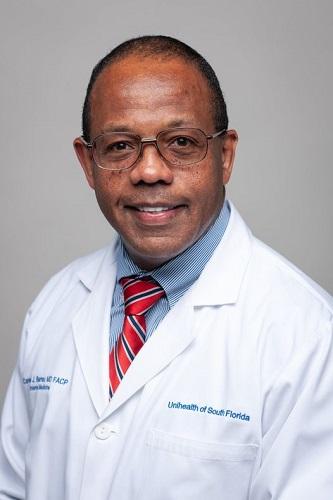
We've created the only publication with a statewide distribution platform, connecting businesses to passionate consumers and entrepreneurs who are eager to buy from them.
Our publication will be printed and distributed monthly in 500 locations across Florida every month, we have the widest range of readership of any Caribbean American publication—helping you reach a bigger audience than ever before.
We're going digital so that readers can engage with our content using their phones or computers. No matter how your potential customers consume information, our platform has something for everyone. And speaking of everyone:
We boast the largest text and email database of both Caribbean Americans living in the US—ensuring that you get maximum exposure without wasted impressions.
Plus, for only $50 per month (or $150 for featured placements), advertising with us is incredibly affordable. Are you ready to get started?
Online Directory + First Month Social Share $50.00
Are you looking to access the vibrant, diverse, and influential Caribbean diaspora that exists in Florida?
Look no further than Caribbean American Passport News Magazine!
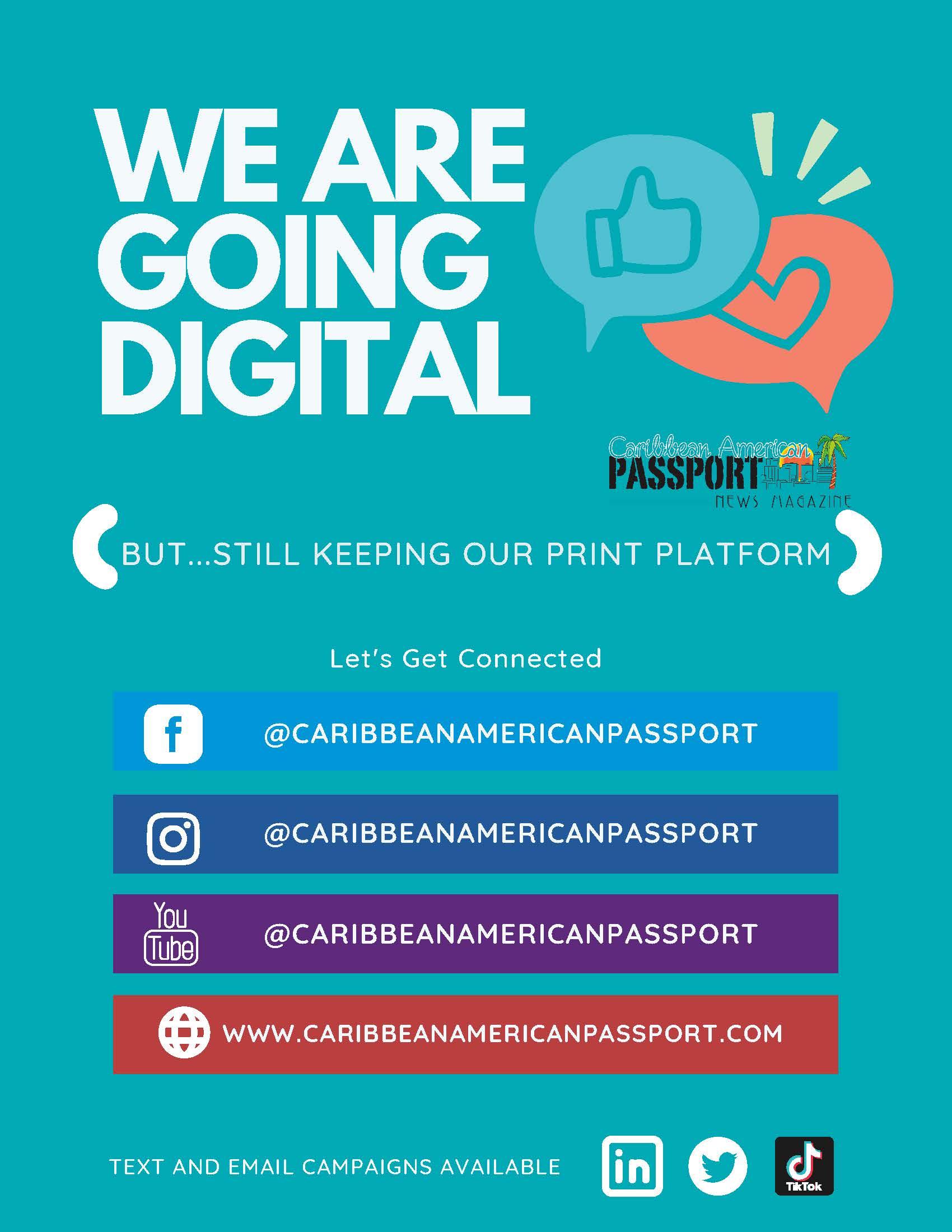
www.caribbeanamericanpassport.com
7
us at 407-427-1800 Sam at 407-810-6435 or Guenet at 407-421-8118
Contact
The IMF Surcharge Fees: A Struggle for Developing Countries and Borrowing Nations
TheInternationalMonetaryFund(IMF)isavitalinstitution that provides financial assistance to countries facing economic crises or seeking development aid. However, for developing countries and nations forced to borrow from the IMF, the imposition of surcharge fees can worsen their financialdifficulties.
IMF surcharge fees are additional charges imposed on member countries that borrow beyond certain predeterminedlimits.Thesefeeswereintroducedin2009to strengthen the IMF's financial stability and prevent excessive borrowing. When a country exceeds its borrowing quota, it must pay surcharge fees on the excess amount borrowed
For developing nations, surcharge fees can create a vicious cycle of debt and hamper their economic growth prospects. When faced with economic downturns or urgent development needs, these countries are forced to turn to the IMF for financial support. However, the imposition of surcharge fees increases the overall cost of borrowing and canleadtoasnowballeffectofdebtaccumulation.
Escalating Debt Burden: IMF surcharge fees compound the debt burden for developing countries. The additional costs can strain already fragile economies and divert resources away from critical sectors such as education, healthcare, and infrastructuredevelopment.
Reduced Fiscal Space: The surcharge fees shrink the fiscal space available to these nations, limiting their ability to implement social welfare programs and public investments necessaryforsustainabledevelopment.
Creditworthiness: Higher borrowing costs can negatively impact a country's creditworthiness in international markets, making it more difficult and expensive to accesscapitalfromprivatelenders.
Crowding Out Private Investment: As IMF lending may be perceived as less risky, it can crowd out private investment in these countries, potentially hindering private sectorgrowthandjobcreation.
ImpactonCountriesForcedtoBorrowfromtheIMF

In some cases, countries may be compelled to seek IMF assistance due to external shocks, unfavorable global economic conditions, or policy constraints. For these nations, the surcharge fees can worsen their economicpredicament.
Limited Policy Autonomy: Countries that rely on IMF assistance may find themselves subject to policy conditionality. IMF loans often come with policy prescriptions, such as fiscal austerity measures and structural reforms. The imposition of these conditions may limit a country's ability to pursue its own economicpriorities.
Economic Instability: Surcharge fees, combined with stringent policy conditions, can exacerbate economic instability in these countries, leading to social unrest andpoliticalchallenges.
Uneven Burden Sharing: Surcharge fees can result in an uneven distribution of the financial burden among IMF member countries. Developing nations might perceive this as an unfair treatment that puts undue pressure on theireconomies.
IMF surcharge fees pose significant challenges for developing countries and nations compelled to borrow from the IMF. These fees can exacerbate debt burdens, restrict policy autonomy, and hinder economic growthprospects.
To address these concerns, a comprehensive review of the IMF's lending policies and burden-sharing mechanisms is essential. Developing countries and borrowing nations require fair and sustainable solutions that foster economic stability, growth, and equitable development.
Additionally, promoting financial inclusion and domestic resource mobilization within these countries can help reduce reliance on external borrowing and mitigate theimpactofIMFsurchargefees.
www.caribbeanamericanpassport.com 8
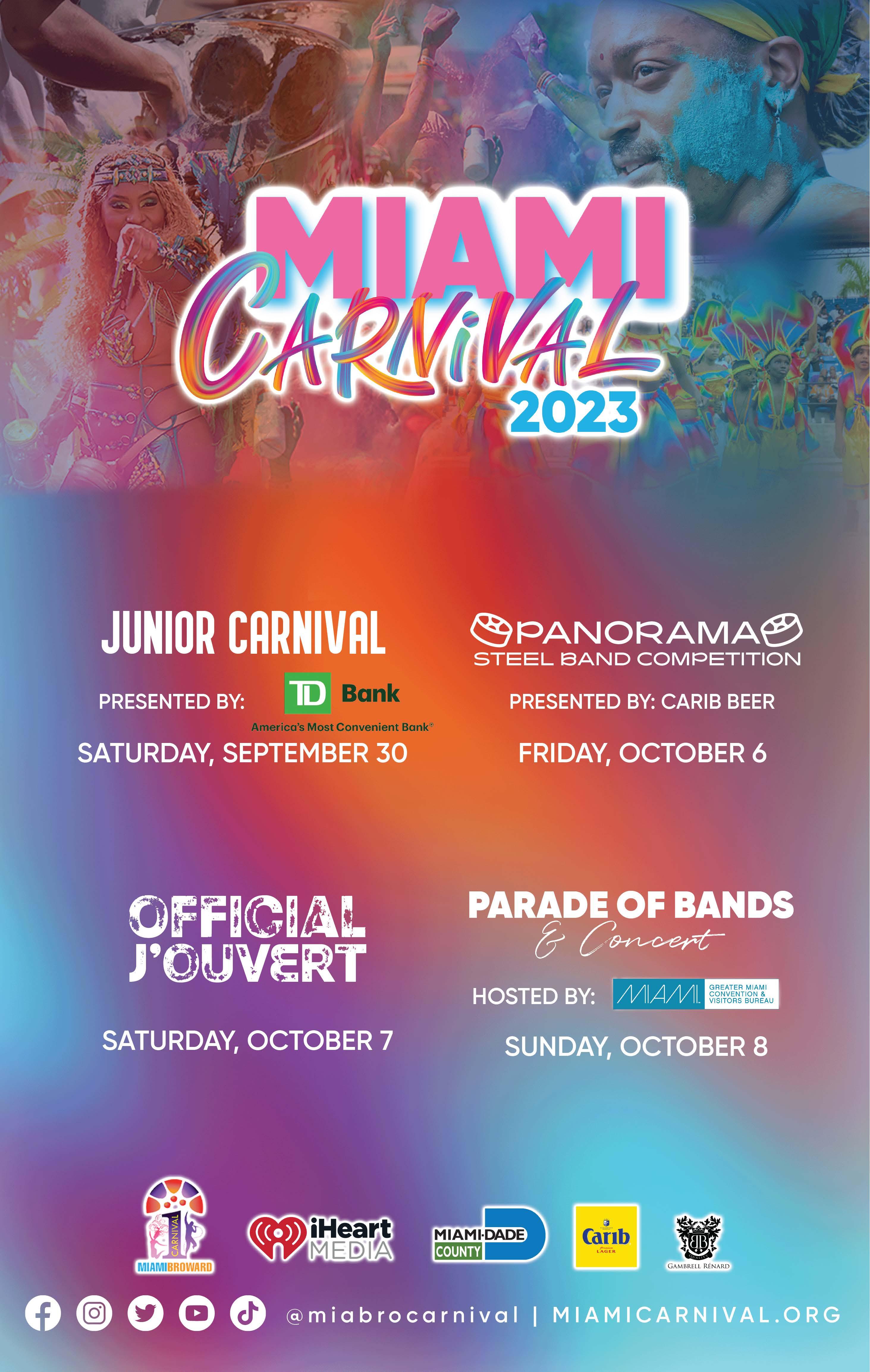
www.caribbeanamericanpassport.com 9
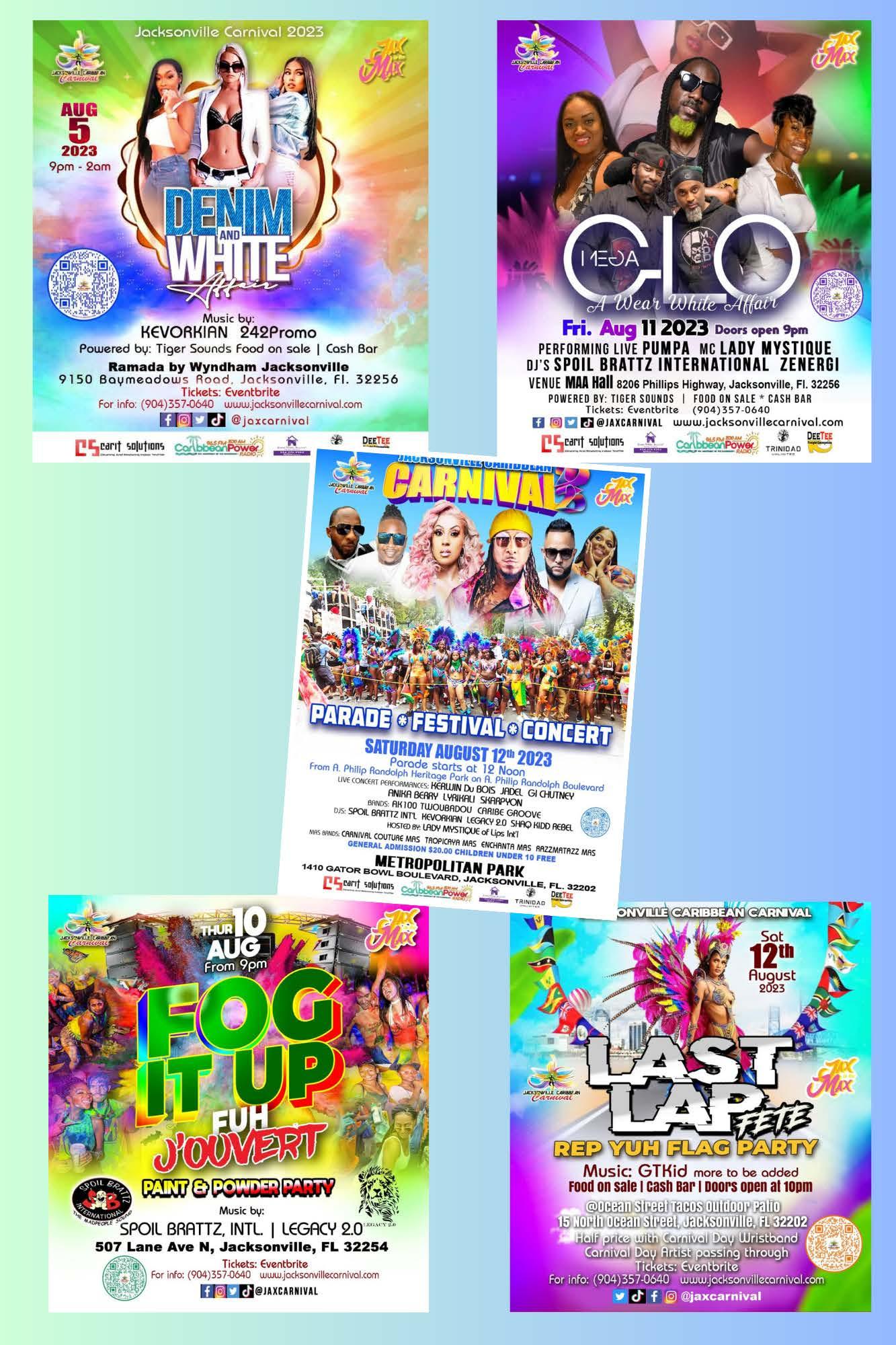
www.caribbeanamericanpassport.com 10
This event brings us together as one, as we celebrate our Caribbean Culture and Heritage. In our continued quest for brighter futures, and in commemoration of National Caribbean Heritage Month, this year’s Scholarship Award Topic will help to educate our young people about their proud Caribbean Heritage. The subject is “How can I make contributions to improve my community” a subject that our local high school and essay competition writers will be able to express on paper their thoughts and aspirations for their future.
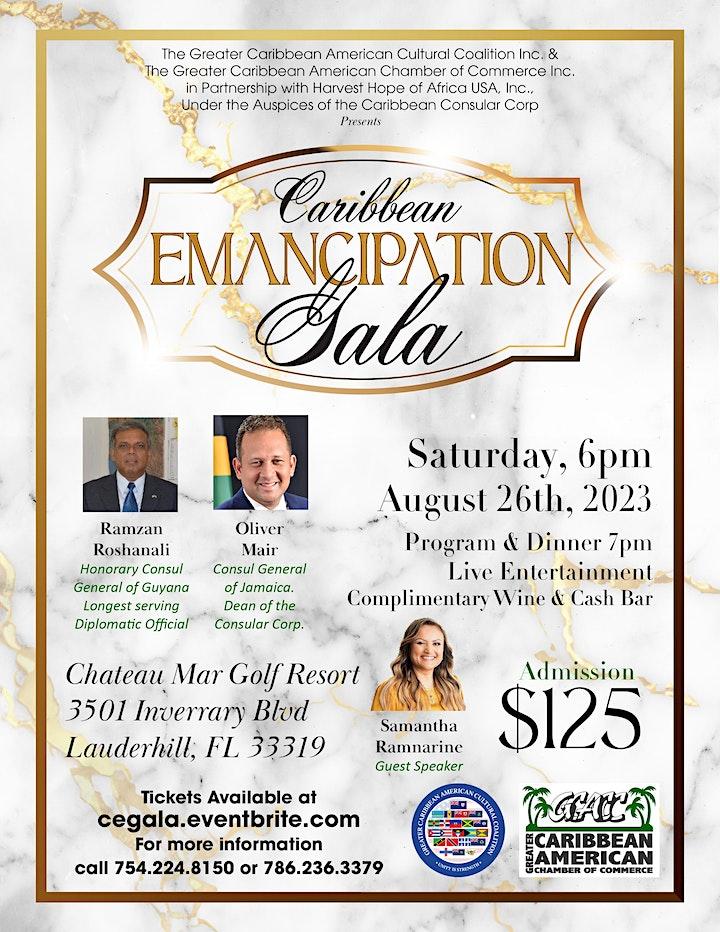
11 www.caribbeanamericanpassport.com
TOP 6 Vacation Spots in the Caribbean this Summer.

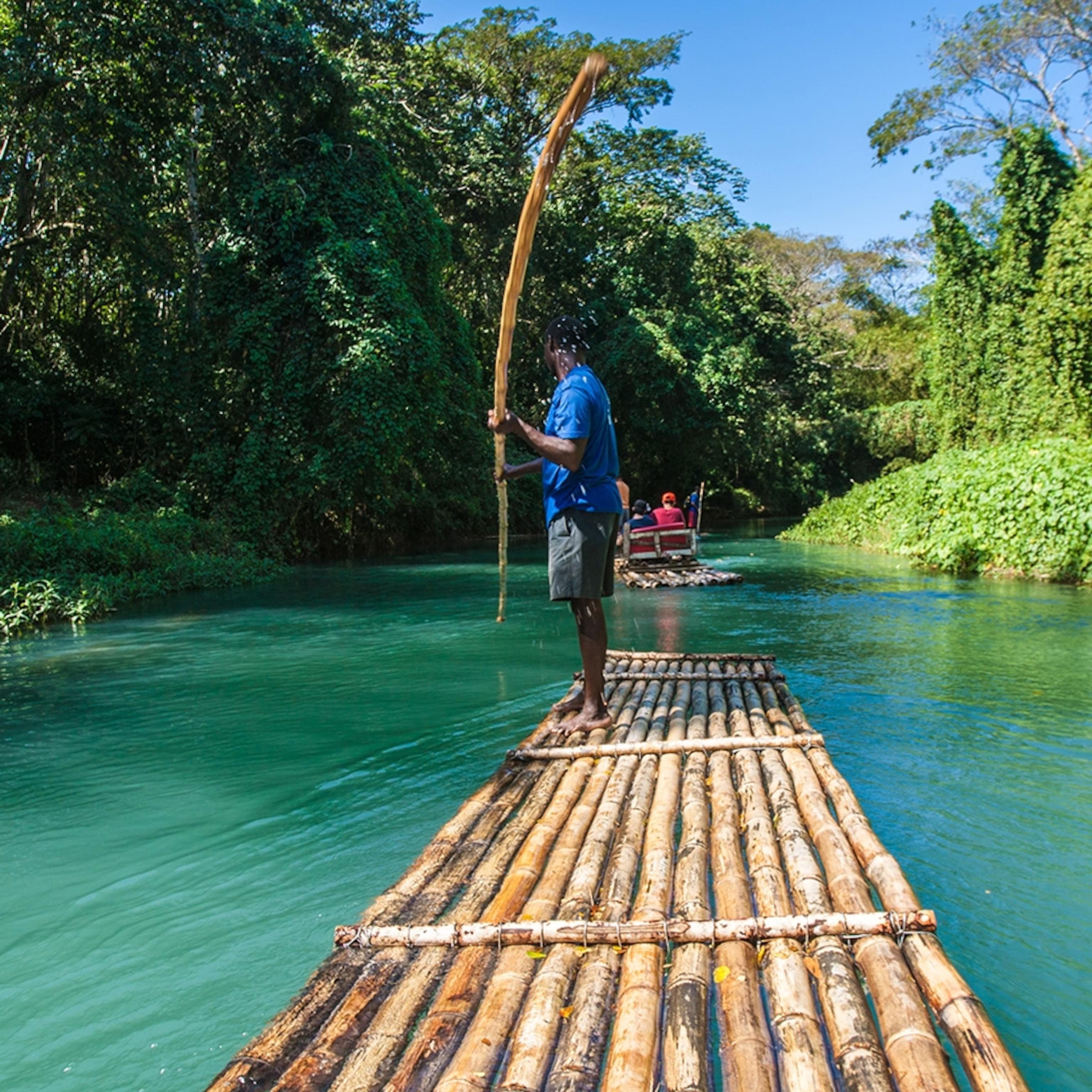
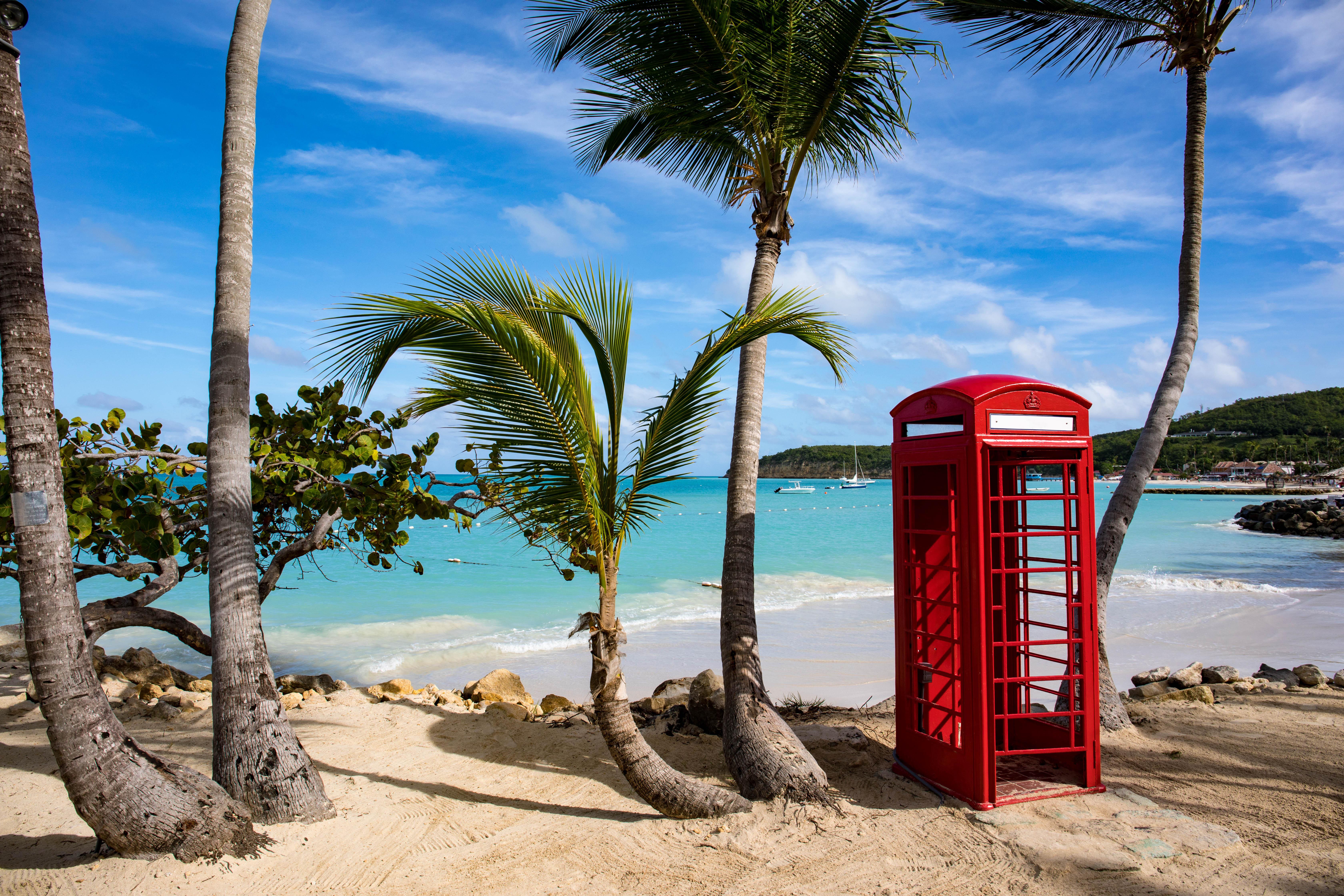
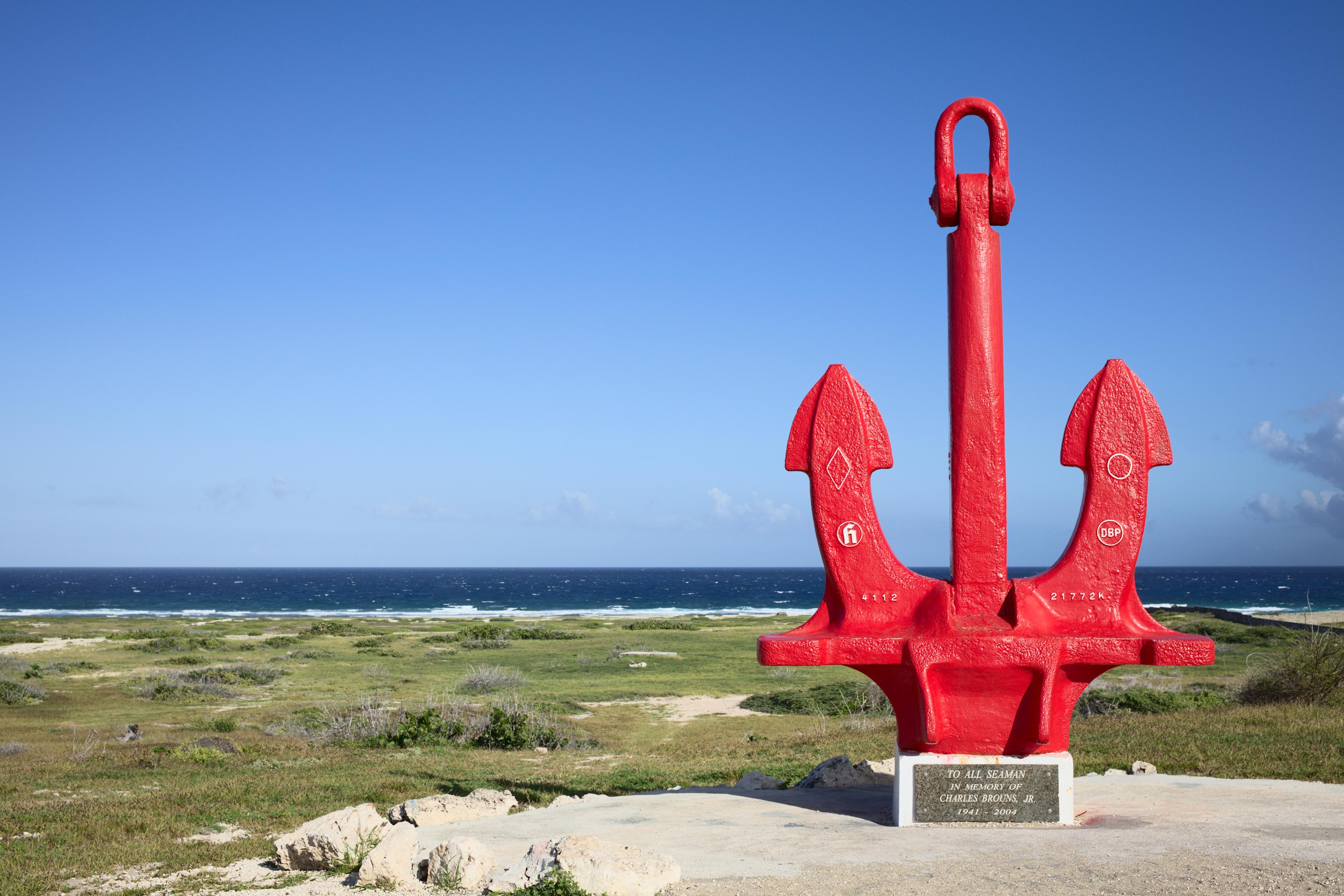
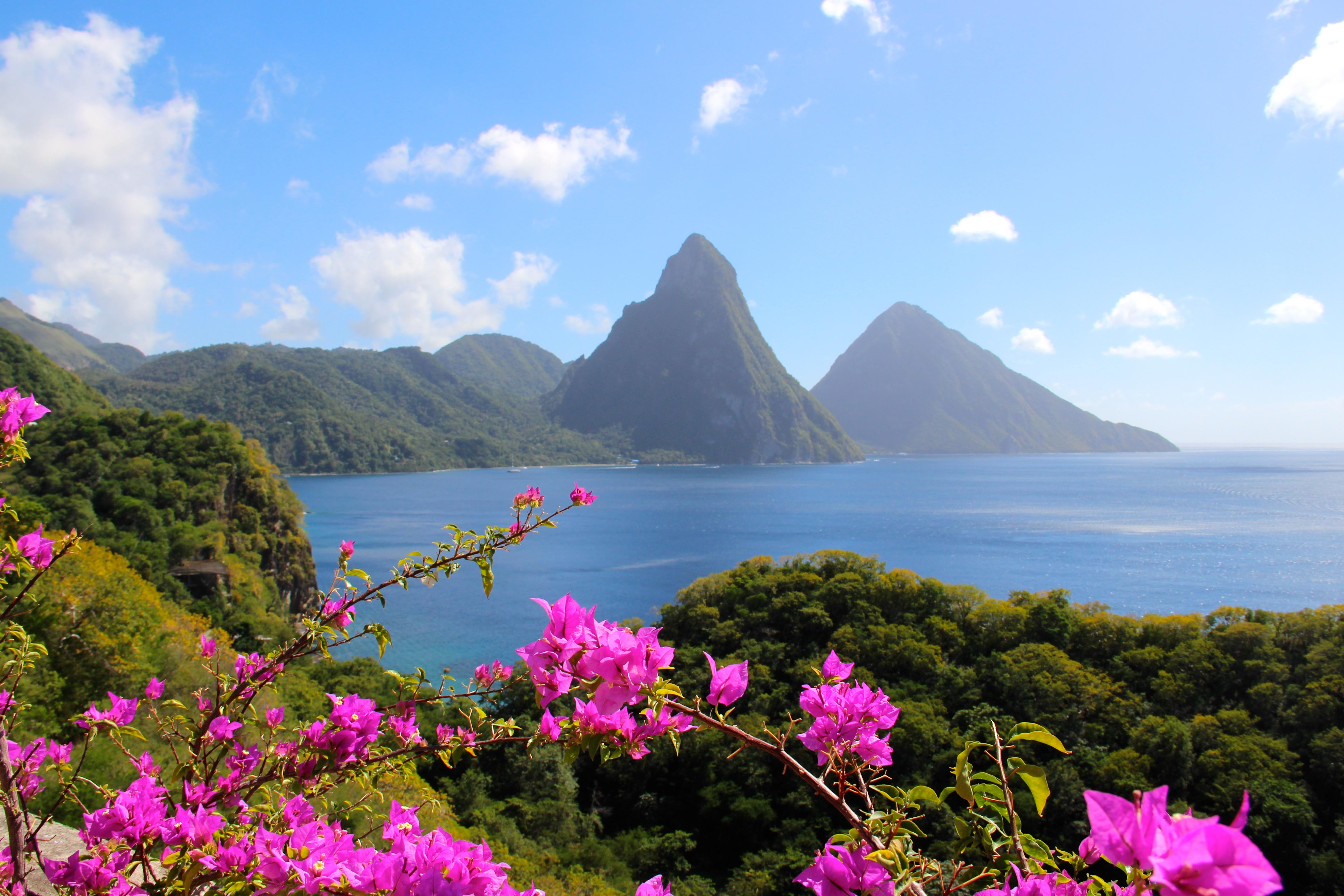
The Caribbean is a mesmerizing paradise of turquoise waters, white sandy beaches, and vibrant cultures that beckon travelers from around the world. With a plethora of tropical gemstoexplore,itcanbetoughtodecidewheretobeginyour Caribbean adventure. To help you plan your dream getaway, we have curated a list of the top 10 must-visit destinations in the Caribbean, each offering a unique and unforgettable experience.
St. Lucia is a tropical gem known for its breathtaking natural beauty. What sets this island apart is the iconic twin peaks, Gros Piton and Petit Piton, rising dramatically from the sea. The lush rainforests, hidden waterfalls, and volcanic beaches offer an array of outdoor adventures. St. Lucia is also famousfor its romantic ambiance, making it an ideal destination for couples seeking a picturesque and
Jamaica is a vibrant island renowned for its reggae music, lively culture, and warm hospitality. The island offers a diverse range of experiences, from relaxing on the famous Seven Mile Beach in Negril to exploring the lush landscapes of the Blue Mountains. Adventure seekers can climb the Dunn's River Falls, while history buffscanvisittheBobMarleyMuseuminKingston.
Aruba's appeal lies in its perfect climate with year-round sunshine and constant trade winds that provide a pleasant escape from the heat. The island boasts some of the most beautiful beaches in the Caribbean, such as Eagle Beach and Palm Beach, perfect for sunbathing and water activities. Aruba is a desert island with a unique landscape of cacti and divi-divi trees, creating a distinct and picturesque
Turks and Caicos is renowned for its world-class luxury resorts and exclusive beaches. Grace Bay Beach on Providenciales is often rated as one of the best beaches globally, known for its soft white sand and turquoise waters. The islands boast some of the Caribbean's most spectacular coralreefs,attractingsnorkelersandscubadiversfromaround theworld.
Antigua and Barbuda offer 365 beautiful beaches, one for each day of the year. The twin-island nation is a haven for water sports enthusiasts, with excellent conditions for sailing, snorkeling, and kitesurfing. The historical charm of English Harbour and Nelson's Dockyard, a UNESCO World Heritage Site,addsauniqueculturalaspecttothedestination.
The Bahamas is an archipelago of over 700 islands and cays, offering an abundance of stunning beaches and crystal-clear waters. Each island has its charm, from the vibrant culture and historical sites of Nassau to the secluded and pristine beaches of the Exumas. The Bahamas' underwater wonders, including vibrant coral reefs and abundant marine life, make it a diver's paradise.
12 www.caribbeanamericanpassport.com
Atlantis Bahamas
Jamaica - Rafting the Rio Grande
Antigua & Barbuda - Siboney Beach Club
St Lucia - Iconic Twin Peak - Gros Pitov & Petit Piton
Seamen's Anchor, Aruba - photograph, red, anchor, monument,
Orlando International Trade and Cultural - EXPO 2023
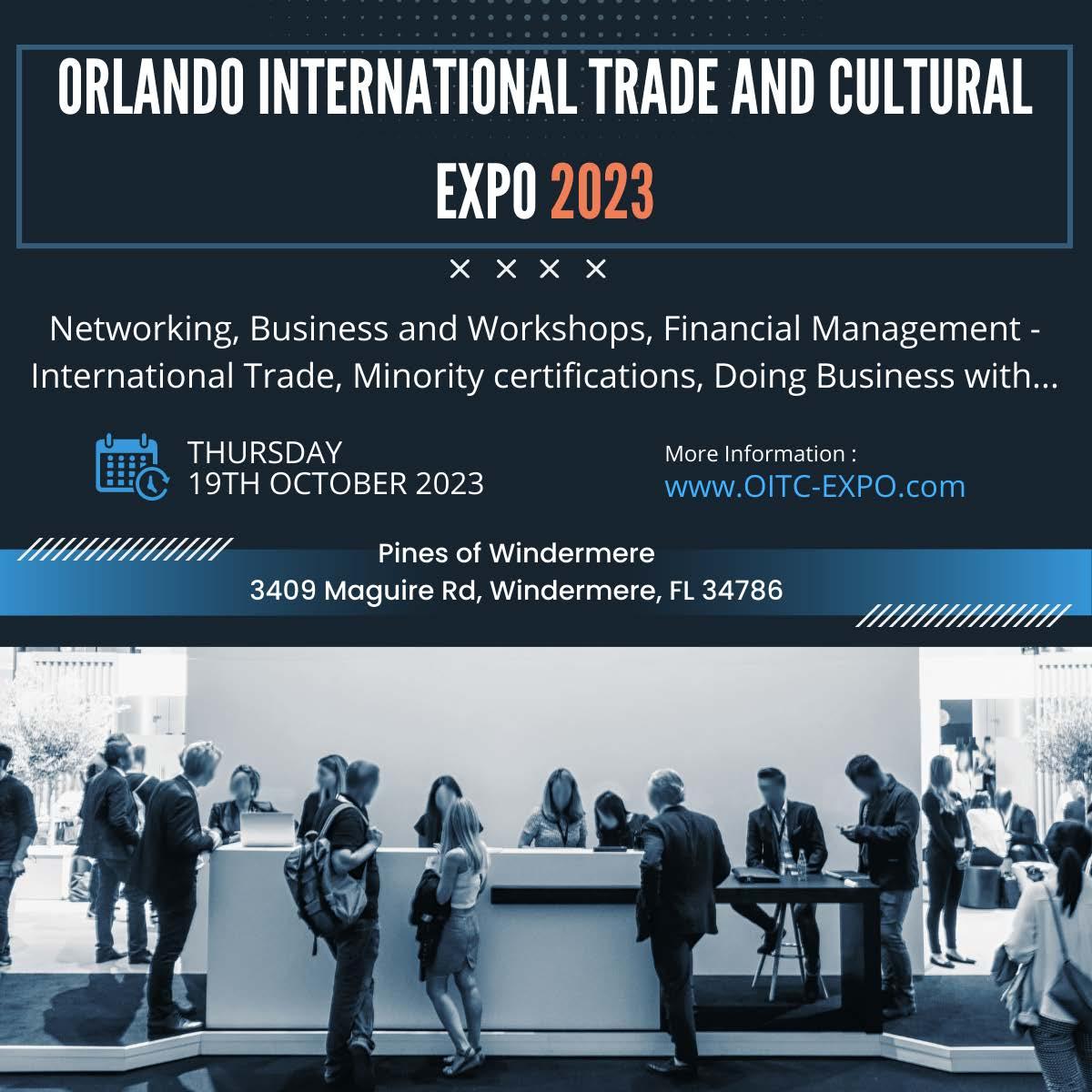
VISION:
Our vision is to welcome new businesses, expand global sales, foster collaboration, and build strong connections while providingessentialtoolsandresourcesforthoseaspiringtolive and work in the vibrant heart of Central Florida.
At OITC-Expo, you will have the privilege of engaging with a diverse array of local and international companies, connecting with key leaders, industry experts, and attendees from around the world, centered on international trade, foreign direct investment, and culture. Learn more about Florida's cities, with their substantial purchasing power and unmet commercial needs, as these burgeoning markets have become prime targets for businesses seeking new opportunities
This event is expected to attract an estimated attendance of 600 people, offering networking and business expansion opportunities.TheOITC-ExpoTeamispassionatelyworkingto showcase the multicultural essence of Florida and the global tradepotentialitpossesses.Itistimetoelevatebusinessestothe next level and bring them to this dynamic region, all while celebrating the diverse food and cultural elements that enrich ourcommunity.
• Promote Florida Redevelopment: community redevelopment, including health and education, cleanupofcontaminatedproperties.
• WorldExpoShowcasingDoingBusinesswithother Countries-Anextraordinaryopportunitytoexplore andfosterbusinessrelationshipswithrepresentatives fromnumerouscountries.
• The future of Health through Entrepreneurship and Innovation - Natural health practices, Mental Health in the workplace, Juvenile Intervention programs, Early detection, Healthcare counseling, FREE programs,AARPMembership.
• Community Development Block Grant (CDBG) Program - An informative session on federal funding for housing and community development activities, offering communities a chance to secure fundingfortransformativeprojects.
• CulturalTourismandthelocal,internationalimpact oncommunitydevelopmentandeconomicgrowth.
www.caribbeanamericanpassport.com 13
Surge in COVID-19 Cases Sparks Alarm in Jamaica: Health Minister Calls for Vigilance

Jamaica is facing a concerning surge in COVID-19 cases, prompting the country's Health and Wellness Minister, Dr. Christopher Tufton, to issue an urgent warning. The alarming rise in infections was discussed during a recent Post Cabinet Press Briefing held at Jamaica House's Banquet Hall, drawing attention to the need for heightened vigilance andprecautionarymeasures.
Minister Tufton expressed deep concern over the continuous increase in COVID-19 cases, which has been observed as anongoing trend. Just last week, he addressed the situation inParliament, shedding light on the troubling reality of a monthly average of 100 cases since January. This upward trajectory has raised alarms among health authorities, necessitating immediate action to curb the spread ofthevirus.
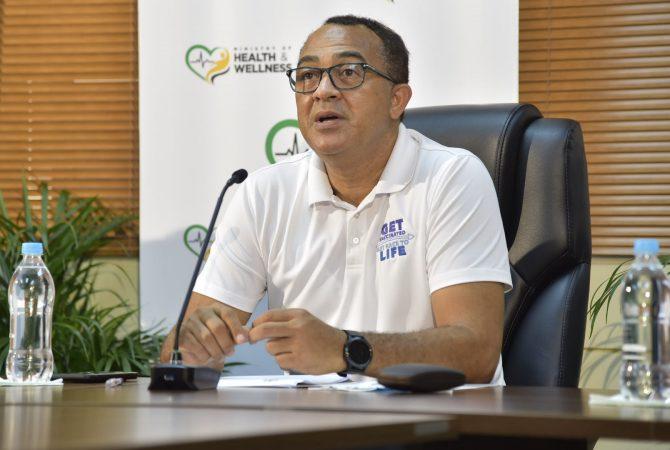
As the highly transmissible Delta variant wreaks havoc globally, countries around the world, including Jamaica, are grappling with its impact on public health and healthcare systems. The Delta variant's increased virulence underscores the importance of adhering to strict preventive measures, including mask-wearing, social distancing,andvaccination.
Jamaica's health authorities are working tirelessly to manage the situation, but they stress that public cooperation is vital to mitigate the spread of the virus. The Health and Wellness Minister emphasized that collective efforts are crucial in curbing the transmission, protecting vulnerable populations,andeasingtheburdenonhealthcarefacilities.
The surge in COVID-19 cases in Jamaica serves as a stark reminder that the pandemic is far from over. It highlights theneed for a proactive approach to safeguarding public health and emphasizes the importance of vaccination as an essential tool in the fight against the virus.The Jamaican government has been actively promoting vaccination campaigns,aiming to increase vaccination
rates and achieve widespread immunity.Vaccination remains one of the most effective ways to protect individuals from severe illness and hospitalization, and it also plays a critical role in controlling the spread of the viruswithincommunities.
As the nation confronts this surge in cases, citizens are urged to remain vigilant and adhere to public health guidelines. Continued vigilance in practicing preventivemeasures, along with prompt vaccination, will be instrumental in mitigating the impact of the virus and safeguarding the health and well-being of the Jamaicanpopulation.
Health Minister Dr. Christopher Tufton's warning serves as a call to action for all Jamaicans to come together and prioritize public health. By taking collective responsibility and working hand in hand with health authorities, the nation can navigate through this challenging period and emerge stronger in the ongoing battle against COVID-19. It is essential for each individual to play their part in protecting themselves, their loved ones, and the wider community, as Jamaica strives to overcome this surge in COVID-19 cases and pave the way towards asafer,healthierfuture.
14
www.caribbeanamericanpassport.com
Health and Wellness Minister, Dr. Christopher Tufton
Embracing Rich Traditions: The Vitality and Economic Benefits of Cultural Tourism in Florida and Beyond

Cultural tourism, an integral aspect of the travel industry, has emerged as a powerful force in promoting global understanding, preserving heritage, and contributing significantly to local economies. Florida, known for its diverse cultural landscape, stands as a shining example of how embracing heritage can generate substantial financial impact, attracting travelers from aroundtheworld.
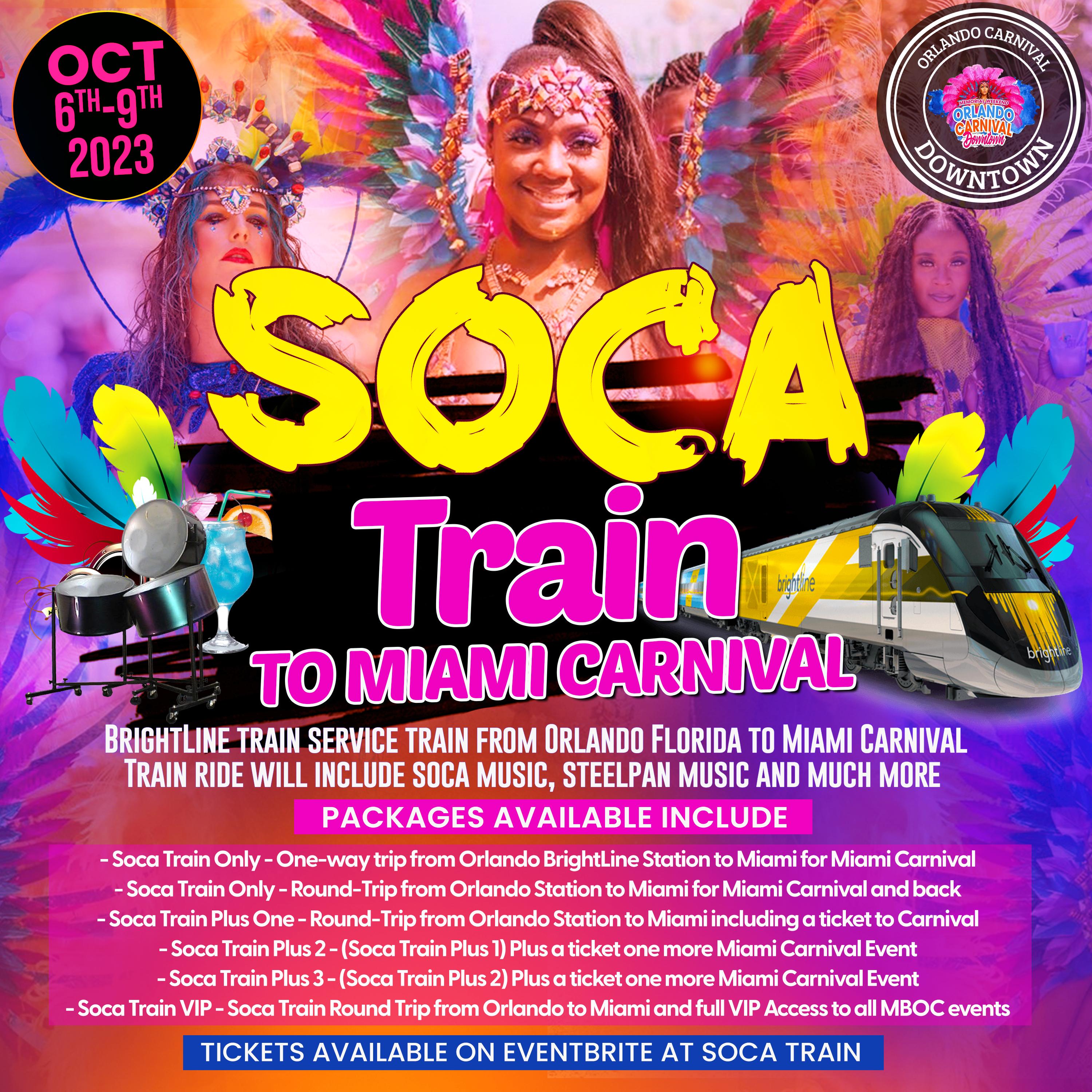
Cultural tourism offers an immersive experience that allows visitors to connect with a destination on a deeper level. By exploring local traditions, arts, music, festivals, and historical landmarks, travelers gain insight into a region's unique identity. This exchange fosters mutual respect and appreciation among cultures, fostering greater tolerance and understanding in an increasinglyinterconnectedworld.
In Florida, cultural tourism plays a pivotal role in preserving the state's rich history and diverse heritage. From the thriving art scenes of Miami to the historic charm of St. Augustine, tourists are drawn to the state's unique blend of Caribbean, Latin American,NativeAmerican,andEuropeaninfluences.
Cultural tourism has become a driving force behind economic growth in Florida and many other parts of the world. The influx of tourists seeking authentic cultural experiences contributes significantly to job creation and business opportunities. Local artisans, performers, and cultural institutions benefit from increasedpatronage,thusfosteringsustainabledevelopment.
Beyond Florida's borders, countries with a strong emphasis on cultural tourism, such as Italy with its historical landmarks and France with its art and culinary offerings, reap substantial economic rewards. The revenue generated from ticket sales, hospitality services, transportation, and souvenir sales bolsters the local economy, benefiting small businesses and entire communities.
Moreover, cultural tourism serves as a catalyst for infrastructure development.Thedemandforwell-maintainedhistoricalsites,
museums, and cultural centers prompts investments in renovation and preservation projects, which, in turn, enhancetheoveralltouristexperience.
"Cultural tourism is backed by a desire to discover, learn about and enjoy the tangible and intangible cultural assets offered in a tourism destination, ranging from heritage, performing arts, handicrafts and gastronomy." UNESCO. American cultural heritage travelershaveaneconomicimpactofover$123Billion. To ensure the long-term success of cultural tourism, a sustainable approach is essential. Preservation efforts, environmental conservation, and community involvement must be integrated into tourism strategies. Responsible practices safeguard cultural sites and traditions for future generations, avoiding overtourismandnegativeimpactsonlocalcommunities.
Cultural tourism serves as a bridge between nations, fostering appreciation and understanding of diverse traditions while bolstering economic growth. Florida, with its cultural kaleidoscope, stands as a testament to the positive impact cultural tourism can have on a region's identity and financial prosperity. As travelers seek meaningful connections and authentic experiences, the global significance of cultural tourism is poised to grow, reinforcing the notion that embracing heritage is a win-win for both visitors and hostcommunities.
15 www.caribbeanamericanpassport.com
PLAY MITSY FOR ME
Even though Rudyard Kipling wrote in “The Ballad of East and West” that “East is East and West is West and never the twain shall meet”, fortunately for me I first met the Twain through his first book. I was just a few years old and got a copy of the Classic Illustrated cartoon “The Adventures of Tom Sawyer” by Mark Twain. One of the early adventures was about a dog which howled in the night. When Huckleberry Finn asked his friend Tom, “What does he (the dog) mean?”, Tom replied, “Huck, he must mean us both –we’re right together.” This was it for the very frightened Huck who exclaimed, “Oh, Tom, I reckon we’re goners. I reckon there ain’t no mistake ‘bout where I’ll go to. I been so wicked.”
Fortunately for them, Mark Twain was a dog lover. He named his three dogs, “I Know”, “You Know” and “Don’t Know”, He was convinced, “The dog is a gentleman; I hope to go to his heaven not man’s.” Mark Twain also made other comments that put dogs in a much higher place than people: “If there are no dogs in Heaven, then when I die I want to go where they went.”, “Heaven goes by favour. If it went by merit, you would stay out and your dog would go in.”, and my favourite, “The more I learn about people, the more I like my dog.”
When Mark Twain was asked, “Do you believe in love at first sight?” he replied, “Absolutely. I fall in love with every dog I see.” I am different. Every dog that sees me immediately tries to get me, or worse, changes to a more dangerous species and runs me down with ill and evil intent. I wouldn’t mind if it is a Rottweiler, or even one of Indian descent like a Roti-Weiler. Or even a West Indian cricket icon which is a cross between a collie and a Lhasa apso. In other words, like the cricket team itself, a “Collapso”. I don’t even flinch if you deem my joke to be a mixture of a terrier and a bulldog, in other words, “Terribull”. I will not be afraid if you attack me by saying that I am a cross between a bulldog and at shi tzu. But what I fear, and inevitably happens when the dogs pick up my scent, they all become a mix of pitbull and golden retriever. First they want to bite off my leg in pieces, and then bring it back to me in peace.
ANIMAL MAGNET
Fortunately, my wife Indranie is an animal magnet and claims this is why I was attracted to her (and not she to me, or so she claims). While I had grown up with my grandfather’s “hunting” dogs and my father’s dog which I named “Devil” (after the Phantom’s wolfhound), my wife and children were more at home (as were the dogs) with what are known as “pom-peks”, pomeranian-pekingese that are generally tiny, cute, and fluffy dogs. They are also called “pot hounds” because they eat a lot. However, they make up for it by being dedicated watch dogs whose barks are worse than their bites and they easily wake up the entire neighbourhood. There is a pom-pek story that I like. A man entered a small country store and saw a sign saying, “Beware of the Dog”. He looked around cautiously but all he could see was a tiny dog, like one of ours, darting madly from one corner to the other. The man laughingly asked the owner, “Is that the dog people are supposed to beware of?” “Yes,” the owner replied. “He sure doesn’t look dangerous to me,” observed the man. “Why did you put up the sign?” The owner explained, “I had to. People keep tripping over him.” If anybody tried that with one of our pom-peks he would be licked to pieces.
by Tony Deyal
Now, having lived in Barbados, Belize and Antigua, we are back in Trinidad and are down to one Trini rabbit which listens to music every night, and two very little pom-peks which Indranie brought from Antigua and to which I am allergic. However, Indranie makes up for my inability to help by taking great care of them and treating them like her own children. Worse, Indranie’s own children treat and feed the animals like their own children, and not in mother-ration but more like mine.
The older of the two dogs is Mitsy. She lived near our home in Antigua and like the Energizer Bunny kept on coming and coming, trying and even crying to get into our yard and live with us. Several times we took her back to her owners and as soon as she could, she was there again in front our gate, looking sad and hungry. At that time, she was about seven years old. One day, after we had taken her back to her owner, she came and parked up in front of our gate. We did not let her in, but could not let her starve. After three days in the heat and cold, I gave in. We took her inside, fed her and gave her a place of her own. The dog’s owners called her “Missy”, but Indranie wanted to change the name. I suggested that we should call her “CASIO” since she would be an efficient watchdog, but had to settle for “Mitsy”, a name that signifies a freedom-loving and free-spirited individual.
Mitsy was all that and more, especially when it came to having children. We had two male dogs, Crix, named after the biscuit because of his brown and white tones, and Bungee, son of Crix, a combination of my favourite soca artiste Bunji Garlin, and Darling for “loved one”. Both enjoyed fatherhood with Mitsy and even when they fought each other they were not kidding but she was. Her youngest daughter, Sheba, came with her to Trinidad and for a long time they were a pair, roaming through the yard and barking loudly at any passing car, bird or dog regardless of size.
Unfortunately, now at just over 17 dog-years old, the human equivalent of about 85, Mitsy is blind and deaf, but is still not giving up the fight and our family. She uses her sense of smell, huffs, puffs and goes around in circles in the yard ensuring that she keeps tabs on her daughter whom she continues to mother, and her mother Indranie who will never ever go with the advice of the Vets that Missy should be put to sleep. And I am all for that. Dog is love. More, as Mark Twain said and I have learnt from Mitsy, “It’s not the size of the dog in the fight, it’s the size of the fight in the dog.”
*Tony Deyal was last seen quoting Mark Twain, “If you pick up a starving dog and make him prosperous he (or she) will not bite you. This is the principal difference between a dog and a man.”

www.caribbeanamericanpassport.com 16
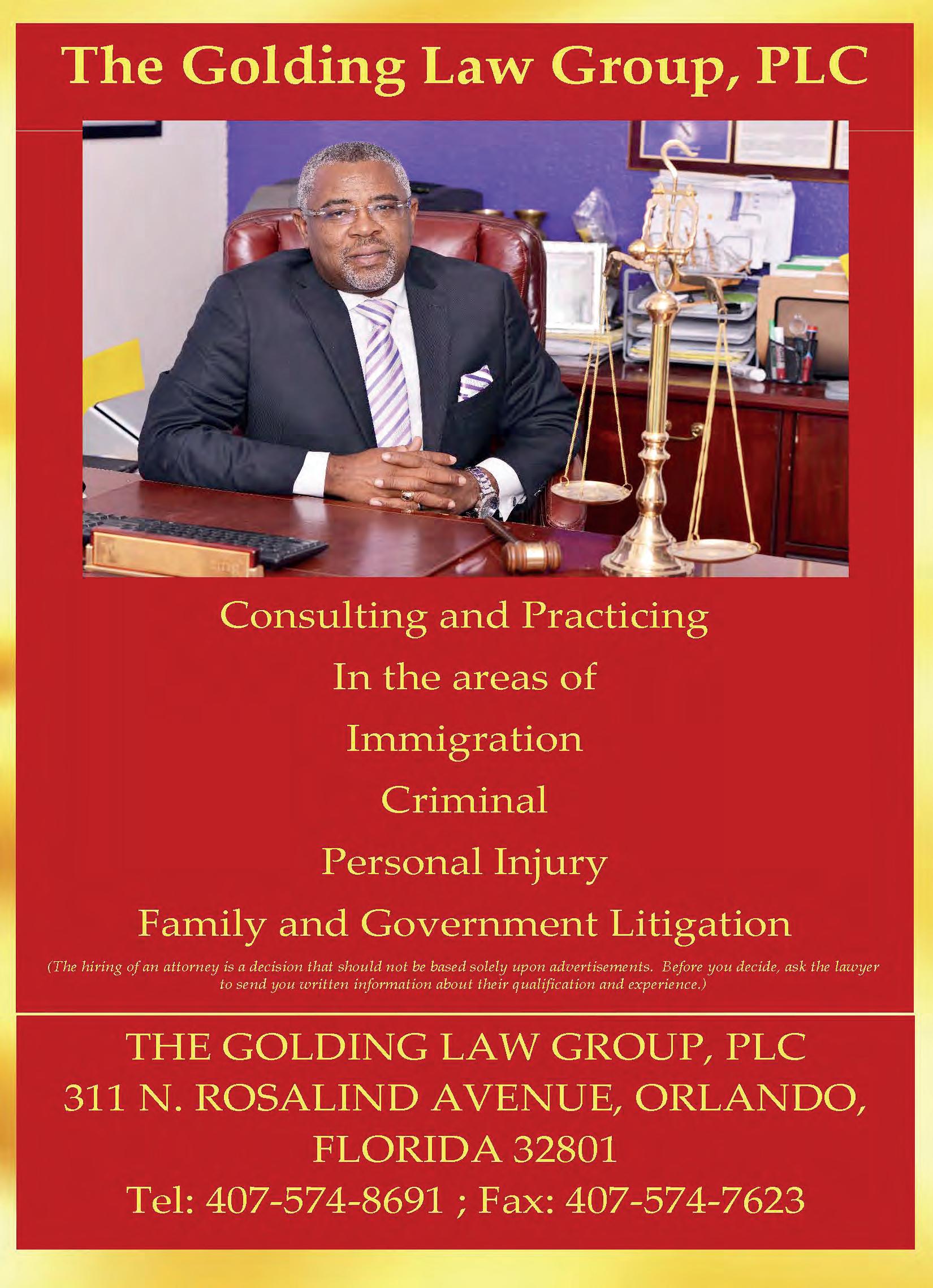
17 www.caribbeanamericanpassport.com




























































